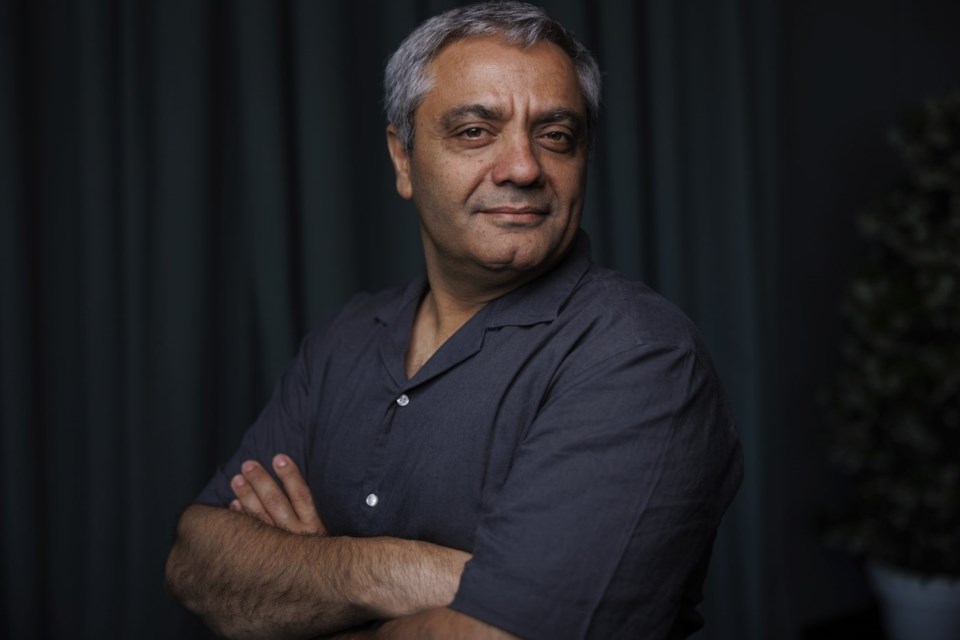was facing — and likely more considering the uncompromising nature of his latest film, “The Seed of the Sacred Fig” — when he decided to flee Iran.
His films and statements criticizing had already earned him a long string of prison sentences, filmmaking bans, travel restrictions and the confiscation of his passport in 2017. Leaving his native country meant embarking on a life of exile, not to mention a risky escape on foot across the mountainous borderland.
Two weeks after the harrowing escape, Rasoulof arrived at with a completed film. At a Cannes where several filmmakers like and have been praised for investing their own money into their films, Rasoulof has put far more on the line: To debut “The Seed of the Sacred Fig," Rasoulof has risked his life.
“I have many more stories to tell, many more narratives to create and films to make,” said Rasoulof, speaking Thursday through an interpreter at Cannes’ Palais des Festivals. “That’s what persuaded me to leave Iran. I had to go on with this mission. I feel that my mission is to connect the audiences of the world to these stories, to this Iranian narrative. This is my plan for the coming years.”
Rasoulof’s dramatic arrival and the explosiveness of his film will bring the Cannes Film Festival to a riveting close. On Saturday, the day after the premiere of “The Seed of the Sacred Fig” in competition, the festival will award Rasoulof's film is seen as a favorite.
“The Seed of the Sacred Fig” is set during and includes real cellphone footage — some it violent and ghastly, censored — from the demonstrations. The film follows a fictional family of four — a father, mother and two daughters — who acutely internalize the political turmoil. The father, who works in the justice system, is forced to rubber-stamp sentences of protesters. He grows increasingly suspicious of his wife and daughters, as the film turns into a darkly penetrating examination of contemporary Iran.
Investing an expansive social drama within the intimacy of a family, Rasoulof says, was a way of reflecting the contrast between the public face and private lives of the Islamic Republic.
“There’s a very strong contradiction between what they say and the ideas they think they embrace and the reality of their lives,” says Rasoulof. “I’ll give you a very absurd example.”
Rasoulof recalls an encounter two years ago. He had fallen ill and was taken to a hospital where revolving soldiers stood guard beside his bed. His captors, though, were eager to watch Rasoulof’ about capital punishment in Iran. It's banned in Iran.
“I had to watch ‘There Is No Evil’ every evening,” he says, laughing. “They were so excited to be there with a filmmaker. And they knew that I had made a film about prison guards, so they wanted to watch it. They had found a flash drive and every night, I had no choice in the film I wanted to watch.”
“What’s going on now in Iran and the change that’s about to happen will come from these families, from the inside,” adds Rasoulof. Already wrestling with social unrest and international sanctions, Iran is currently mourning the death of President Ebrahim Raisi, after being
Although Iranian authorities have not publicly acknowledged Rasoulof's sentence, he was recently sentenced to prison and flogging for films and public statements called “examples of collusion with the intention of committing a crime against the country’s security.”
“The Seed of the Sacred Fig” was shot clandestinely in Iran, with a small cast and crew. Before the movie was edited, some actors also fled Iran. But others who helped make the film have been interrogated and their families summoned for questioning, the director said earlier. The cinematographer’s office was raided.
One of Rasoulof’s greatest frustrations in fleeing Iran was that he had to leave his unfinished film with his collaborators abroad.
“I called them and told them that they would have to take care of the film," the filmmaker says, “whatever happened.”
About two weeks ago, Rasoulof arrived in Germany and rushed to finish work on the final print before sending it to the festival.
“Filmmaking and artistic creature are vital to me” Rasoulof explains. “This is my way of staying alive and carrying on with my life. There is no other way I can imagine living.”
For him, there’s been no change in his interests. He’s driven to tell stories about freedom and human rights, “or the lack of them in my surrounding, in the society I live in," he says.
“What’s maybe different in this last film is maybe I’ve gotten closer to my subject, in a way. More explicit,” says Rasoulof. “Lately, my interest is not that much the system or the government. It’s not the structure that I’m observing anymore, it’s more the people that maintain this system and allow it to function — the mindset of these people, their motivations.”
Ahead of the premiere of the film, “The Seed of the Sacred Fig” was acquired for North American distribution by that’s backed four straight Palme d’Or winners, including last year’s “Anatomy of a Fall” and “Parasite.”
The Directors Guild of America has also voiced support for Rasoulof “in his flight from unjust sentencing.” Lesli Linka Glatter, its president, said in a statement: “We stand in solidarity with him as he seeks safe harbor.”
Asked where he goes from here, Rasoulof says he’s already begun work on his next project, an animated work about a modern Iranian writer.
“My stories have to do with Iran but not Iran in a geographic sense,” says Rasoulof. “So I can do it anywhere. I don’t have to go back to Iran to tell Iranian stories.”
___
Follow AP Film Writer Jake Coyle at:
Jake Coyle, The Associated Press



